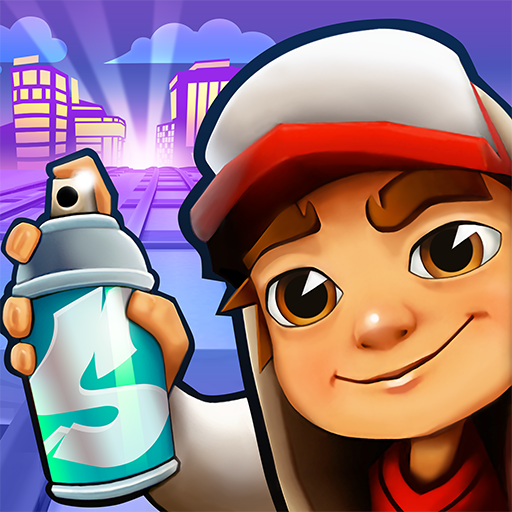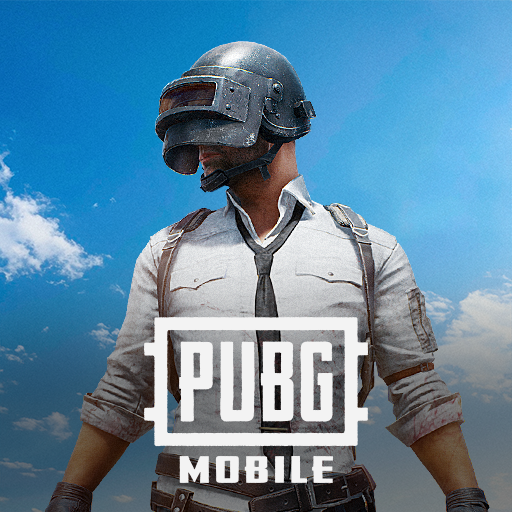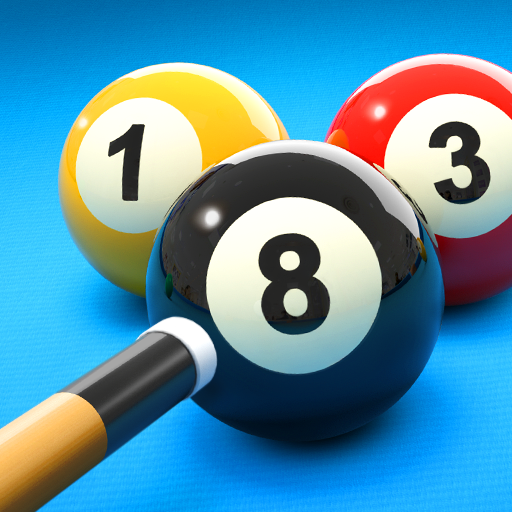Hippo in Search of Adventures - Hippo adventures & puzzles
Join a daring hippo on epic quests with exciting challenges!

- 1.5.8 Version
- 1.5 Score
- 3M+ Downloads
- In-game purchases License
- 3+ Content Rating
Introducing Hippo in Search of Adventures
The game "Hippo in Search of Adventures" is an exciting educational game for children that follows the escapades of Hippo and her younger brother, Ji. Together, they solve riddles and search for keys to unlock doors in their home, with the ultimate goal of finding their mother's old doll.
The main protagonists of the game are Hippo and Ji, who reside with their parents in a house filled with enigmas and mysteries in every room. The siblings, known for their curiosity and love for adventure, team up with the player to uncover keys and unravel riddles.
Intended for kids who enjoy educational and developmental games, this game is ideal for both boys and girls looking to have fun while enhancing their logical and critical thinking abilities.
Each level in the game corresponds to a different room in the house where Hippo and Ji must decode multiple riddles and locate keys to progress further. Upon successfully gathering all the keys, they can move on to the next level in pursuit of unraveling a new mystery.
Numerous surprises and bonuses are integrated into the game to aid children in completing levels more quickly or gaining extra points. For instance, players may discover hidden passageways or closets containing additional keys within the rooms.
The game effectively fosters children's logic, attention to detail, and critical thinking skills while also introducing them to new vocabulary and concepts that could prove beneficial in a school setting.
Embark on a thrilling adventure with Hippo and Ji by downloading the game "Hippo in Search of Adventures" on your mobile device or tablet today to help them locate their mom's cherished old doll.
ABOUT HIPPO KIDS GAMES
Established in 2015, Hippo Kids Games has emerged as a key player in mobile game development. Specializing in crafting enjoyable and educational games tailored for children, our company has distinguished itself by creating more than 150 distinct applications that have collectively amassed over 1 billion downloads. With a dedicated creative team committed to providing engaging experiences, we strive to ensure that children worldwide have access to delightful, educational, and entertaining adventures right at their fingertips.
HAVE QUESTIONS?
We value your inquiries, suggestions, and feedback.
Feel free to reach out to us at: support@psvgamestudio.com
6 Helpful Hints for Solving Riddles (with Examples to Answer)
Co-authored by Hunter Rising
Last Updated: March 30, 2024
Riddles are great ways to test your brain and practice critical thinking, but sometimes the wordplay can get a little tricky to understand. If you’re getting stumped and need a little help solving riddles, we’ve got tons of great strategies and examples to help think through them. Keep reading for tips for deducing a riddle’s answer, how to keep improving your solving skills, and a handful of riddles to test your skills.
Figuring Out the Answer for a Riddle
Recognize the differences between basic types of riddles. There are 3 basic types of riddles: enigmas, conundrums, and red herrings. Enigmas usually use metaphorical, allegorical, or associative language to creatively obscure the correct answer. Conundrums incorporate puns in the question, the answer, or both. Red herrings usually use misdirection or trick questions to stump you.
Example Enigma: Only one color, but not one size, Stuck at the bottom, yet easily flies. Present in sun, but not in rain, Doing no harm, and feeling no pain. What is it?
- Answer: Your shadow
Example Conundrum: What flowers can be found between the nose and chin?
- Answer: Tulips (two lips)
Example Red Herring: There are 5 apples in the basket. You take 2 apples. Now how many apples do you have?
- Answer: 2 (you only took 2 and the remaining apples are still in the basket)
Reread the riddle carefully to catch any wordplay or trick questions. Riddles are normally worded in a confusing way in an attempt to confuse you. Carefully read through the riddle again and think about what question the riddle is really asking.
Example Riddle: A person with a green shirt lives in a Green House. The person with a red shirt lives in the Red House. Who lives in the White House?
Even though it seems like the answer would follow the pattern and be a person with a white shirt, it’s a trick question. Think of another person who lives in a famous White House.
- Answer: The President of the United States
Example Riddle: What can be seen in the middle of March and April, but not at the beginning or end of either month?
While the riddle makes it sound like it’s asking about the middle of the calendar month, it’s actually asking a literal question about the names of the months.
- Answer: The letter “R”
Break the riddle down into parts to solve it in chunks. If you’re trying to solve a longer riddle, separate the riddle into lines or manageable chunks. Consider what each chunk of the riddle is trying to convey, and then piece them back together to help flesh out your answer. Once you have a better understanding of the pieces, it’ll be a lot easier to eliminate wrong answers.
Example Riddle: What walks on 4 feet in the morning, 2 feet at noon, and 3 feet at night?
What has 4 feet? Many animals do, so they could be the answer, but tables and chairs could also be potential things to consider.
What has 2 feet? People and some animals walk on 2 feet, so they’re still options for answers. Tables and chairs don’t have 2 feet, so they aren’t the answer.
What has 3 feet? Not a lot of things have 3 feet, and something with 2 feet wouldn’t be able to grow a third one. The third foot may be something that’s added, like a tool.
Morning, noon, and night? These times may not be the literal time of day. Maybe they talk about the progress of time from beginning to end instead. So what goes from 4 feet in the beginning, 2 feet in the middle, and 3 feet at the end?
- Answer: A person (crawling on hands and knees as a baby, walking on 2 feet as an adult, and leaning on a cane when they’re older)
Focus on words with double meanings or synonyms. As you’re reading through the riddle, look for words that have multiple definitions and try solving it for each meaning. Many riddles also use words that have similar meanings to the answer, so try thinking of related words or phrases.[1]
Example Riddle: What coat is always wet when you put it on?
In this riddle, the coat may not be a piece of clothing you wear. A coat may also mean an outer layer that’s covering something.
- Answer: A coat of paint
Example Riddle: I have a head and tail, but no body. What am I?
Instead of thinking about body parts, the head may mean “front” or “top” and the tail could mean “back” or “bottom.”
- Answer: A coin
Think through what metaphors and figurative language may represent. Riddle writers use descriptive and figurative language to give you clues without telling you the answer directly. They may also use metaphors or similes to represent something different than what’s being described. Try to think of different ways to interpret what the riddle is saying past its literal meaning.[2]
Example Riddle: Thirty white horses on a red hill. First they champ, then they stamp, and then they stand still.
This riddle isn’t actually describing 30 white horses, and “champ” and “stamp” describe how the answer moves. What are 30 white objects that chomp down and are surrounded by red?
- Answer: Teeth (the “red hill” in the riddle refers to your gums)
Example Riddle: I have a long white dress and wear a red cap. I get shorter the longer I wear it. What am I?
The long white dress and red cap may not be actual clothes, but a reference to how the object looks. If the object gets shorter the longer it wears the red cap, it may symbolize something melting under a fire.
- Answer: A candle
Look at all the details in the riddle before jumping to conclusions. Riddles are meant to be tricky, so don’t always go with your first assumption. Take a moment to reflect on the question before making a guess at the answer so you have time to consider all the possibilities.
Example Riddle: David’s parents have 4 children. If 3 children are named Eenie, Meanie, and Miney, what is the name of the fourth child?
Even though the first answer that comes to your head might be “Moe,” take a second to check the question again.
- Answer: David
Look for a literal answer to a trick question. Even though riddles may use confusing words to trick you, they usually have common, widely-known objects as their answers. Riddles usually won’t have abstract answers or require specific knowledge to solve them, so stick to more simple answers.
- Example Riddle: Two coins add up to 30 cents. One of them is not a nickel. What are they?
This riddle doesn’t expect you to know the value of different coins around the world, so it’s not trying to trick you in that way. The riddle only says that one of the coins is not a nickel, but it doesn’t specify if the other one could be.
- Answer: A quarter and a nickel.
Example Riddle: What’s always at the end of everything?
This riddle isn’t a big philosophical question. Instead, it might be more literal about what’s at the end of “everything.”
- Answer: The letter “G”
Riddles to Solve
A five-letter word contains a “P” and “H.” Take away 2 letters and you’re left with one. What is the word?
Even though it’s impossible to remove 2 letters so only 1 letter is left, try to think literally about how the word is spelled instead.
- Answer: PHONE
I fly without wings and cry without eyes. What am I?
Think of synonyms and other meanings. Flying may mean “floating” or something found in the sky. Crying probably doesn’t mean actual tears, so maybe it’s related to something leaking or dripping water.
- Answer: A cloud
What has 13 hearts but no organs?
While living things have hearts, what common household object also contains multiple hearts?
- Answer: A deck of cards
What disappears as soon as you say its name?
A physical object can’t just disappear by saying a word, so the answer may be a broader concept. The answer may be more straightforward, so think about what goes away as soon as you say something out loud.
- Answer: Silence.
Mr. and Mrs. Jones have 4 daughters. Each daughter has 1 brother. How many kids in total do the Joneses have?
Even though the riddle makes it seem like each daughter has a different brother, think through the question logically.
- Answer: 5 kids (4 daughters and 1 son)
What gets wetter the more it dries?
While it seems contradictory, try thinking a little differently. Maybe the answer gets wetter because it’s drying something else off.
- Answer: A towel
A box without hinges, key, or lid, yet golden treasure inside is hid. What am I?
The answer is probably not a real box, and the treasure inside may not be valuable. What common objects have something yellow inside when you open them?
- Answer: An egg
I’m as light as a feather, but no one can hold me for more than a few minutes. What am I?
While the riddle makes it seem like you’re holding the answer in your hand, it refers to something else that can be held.
- Answer: Your breath
What stalks in the countryside with ears that cannot hear?
It sounds like the riddle is describing an animal lurking outside. Consider the other definition of “stalks” like the stems of something growing, and what ears may mean instead of a body part.
- Answer: Corn
I come once in a minute, twice in a millennium, but never in a hundred years. What am I?
Instead of thinking about something that happens in a physical stretch of time, think more literally and look at the actual words in the riddle for your answer.
- Answer: The letter “M”
Improving Your Riddle Solving Skills
Solve puzzles and brain games daily to keep your mind sharp. When you have free time, try doing brain game puzzles, such as crosswords and sudoku, to help keep your brain engaged and improve at similar puzzles. You may even try cryptic crosswords, where each clue has riddles or wordplay to derive the answer.[3]Reverse-engineer riddles you already know the solutions of. Once you learn the answer to a riddle, look back at how it’s worded and try to figure out how all the clues help point toward the correct solution. Work backwards from the solution and break the original riddle into chunks to see how they all relate to the answer.
Example Riddle: I have keys, but no doors. I have space, but no rooms. You can enter, but you cannot leave. What am I?
- Answer: A computer keyboard
Thinking of the unique characteristics of a keyboard, you may note that it has keys you can press, including the Enter key and Space bar. Rather than going with the expected definition of a key being something you press, the riddle makes it seem like the key is used to unlock something. Rather than referring to “space” and “enter” as keys on a keyboard, the riddle obscures the actual meaning.
Try writing your own riddles to improve your solving skills. Start by thinking of a simple object concept to use as the answer for your riddle. Brainstorm characteristics and descriptions of the answer to use as clues in your riddle, and craft them into a few lines. Try giving your riddles to other people to see if they’re able to solve them.
If you want the answer to your riddle to be a broom, you may describe the bristles as “golden hairs” and the handle as a “thin body.” A broom is used to clean, but it gets dirtier the more you use it. You may craft the riddle: Atop a thin body, my golden hairs get dirtier the more they clean. What am I?
- Version1.5.8
- UpdateSep 10, 2024
- DeveloperHippo Kids Games
- CategoryCasual & Puzzle
- Requires AndroidAndroid 5.0+
- Downloads3M+
- Package Namecom.psvn.doors100
- Signature989292366d15d932fd374375b0851581
- Available on
- ReportFlag as inappropriate
-
NameSizeDownload
-
114.63 MB
-
111.87 MB
-
102.95 MB































helps to learn and to have fun
hippos are cute and funny
add some dialogue bubble suggested
downloads so slow